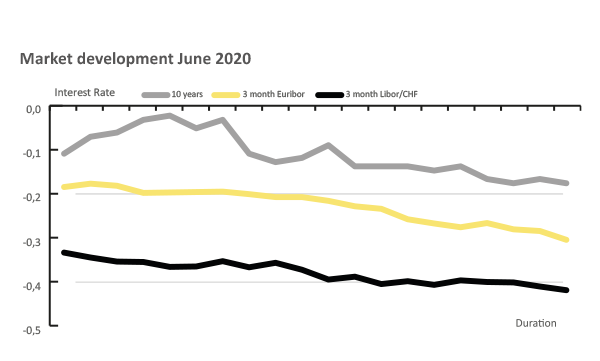Loading content …
17 July 2020
Market Players Cautiously Testing the Water on the Real Estate Financing Market
Things on the financing market are incrementally getting back to normal. But the crisis has surely left its mark. Transactions are becoming more complex in nature. A growing number of sale and purchase agreements, for instance, suddenly seem to contain rights of withdrawal in case that funding efforts fail. In a parallel effort, lawmakers are busy drafting their next housing market intervention – a law that would ban the conversion of rental flats into condominiums. We expect it to become effective before the end of this year.
Neither banks nor alternative lenders are back to “business as usual” yet. Insurance companies and other capital depositories have admittedly become available as financiers again. But for the time being, they still focus primarily on the low-risk segment, which has become even more competitive as a result. Now, as then, bank lending across the board remains very restrictive. Moreover, the persistently low loan-to-value ratios and elevated provisions for losses are forcing banks to accept financing arrangements with LTV ratios above set limits, which means that banks have to set aside equity capital to secure these. This drain on the available risk capital automatically limits the scope for any increase in new lendings. What aggravates the situation is that the organisational structures remain strained to capacity by the processing of promotional loans and financial aid to corporate clients.
All things considered, the new reality in real estate financing can be summarised as follows: reticence among banks in regard to new lendings, higher interest rates and higher capital adequacy requirements for borrowers. This is particularly true for the property development sectors, but to a lesser extent goes for the financing of existing real estate as well.
The COVID-19 pandemic has become part of everyday reality in the real estate business. Revenues are generated again, and a number of transactions are in preparation. We have, however, noted that provisos are added to a very high number of sale and purchase agreements that make them subject to the availability of funding, i.e. grant rights of withdrawal in case that efforts to secure funding were to fail. It is the most conspicuous consequence of the current situation which continues to be defined by a high degree of uncertainty.
Draft Bill for the Development Land Release Act Now on the Table
Meanwhile, the body politic is preparing its next intervention on the housing market. In early June, the Federal Ministry of Building and Urban Development finally presented the ministerial draft bill for the re-enacted Federal Building Code (BauGB) to industry associations for their response (“Baulandmobilisierungsgesetz” – Development Land Release Act). As expected, it contains a condominium conversion ban for rental apartment buildings in areas with strained housing markets. Its rules and regulations hark back to the “rent freeze” rent control legislation, analogously granting the German Laender the option to pass “conversion freezes” for “areas with strained housing markets.” New-build construction is entirely exempt from the bill.
Outlook
The strain on the real estate financing market has continued to ease. However, the market is still a far cry from a return to the status quo ante that preceded the coronavirus crisis. Especially borrowers with complex cases should include extra time in their plans. Plans for condominium conversions of existing property should be fast-tracked with a view to the contemplated law for the release of development land.
Disclaimer:
The article reflect the opinion of the authors. Nevertheless, the provider and authors assume no liability for the accuracy, completeness and timeliness of the information provided. In particular, the information is of a general nature and does not constitute legally binding advice.
Publisher

Francesco Fedele Prof Steffen Sebastian
Prof Steffen Sebastian
Holder of the Chair of Real Estate Finance
at IREBS, University Regensburg
Francesco Fedele
CEO, BF.direkt AG


